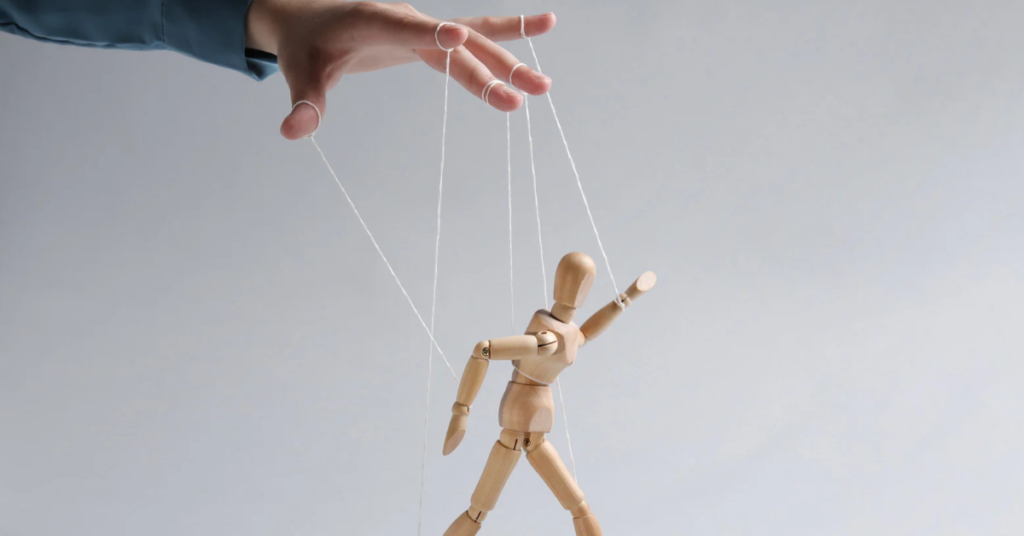
Introduction: When Something Feels Off, But You Can’t Explain It
Recognizing the signs of emotional manipulation can be tricky—especially when you’re emotionally invested in someone. You care, you give, and you try to understand. But sometimes, even with all that love and effort, something still doesn’t feel quite right. It’s not about drama or conflict—it’s that quiet inner voice whispering, “This doesn’t feel good anymore.”
This article is about supporting you. If you’re here because you’re unsure about your relationship or feeling emotionally off balance, you’re in the right place. It’s to help you find clarity, strength, and that spark of confidence again.
Emotional manipulation is subtle. It rarely shows up as loud or obvious. In fact, it often comes wrapped in charm, concern, or even love. That’s what makes it so hard to spot. You might hear things like, “You’re too sensitive,” or “I was just joking,” until you start questioning your own reactions. Sound familiar?
Many women miss the early signs because they’ve been taught to be patient, forgiving, or to keep the peace. You’re not alone in this. It doesn’t mean you’re weak or naive—it means you’re human, and you care deeply.
If you’ve ever found yourself walking on eggshells, doubting your memory, or constantly apologizing—this guide is here for you. Not to fix everything in a day, but to offer support and understanding as you begin listening to your own voice again.
At GrowMyHappiness, we believe healing starts with awareness. Let’s gently explore what emotional manipulation can look like—and remind you that you deserve clarity, not confusion.
Understanding Emotional Manipulation
Let’s break it down—emotional manipulation is when someone tries to control how you think, feel, or act to benefit themselves. It’s sneaky. It doesn’t always show up as shouting or obvious cruelty. Sometimes, it looks like guilt trips, silent treatments, or twisting your words. You might not even notice it at first. That’s what makes recognizing the signs of emotional manipulation so important.
Why do people do this? Often, manipulators feel powerless or afraid of losing control. So they try to shift that discomfort onto someone else—usually someone they feel safe around. That might be you. It’s not always evil or planned. But the result is the same: your voice starts to fade, your confidence dips, and you begin second-guessing yourself.
Now, let’s be clear—not every disagreement or tough conversation is manipulation. All relationships have ups and downs. It’s okay to get annoyed or frustrated with each other. The difference is in the pattern. Healthy conflict leads to growth, understanding, and mutual respect. Manipulation leaves you feeling drained, confused, or responsible for someone else’s emotions.
Think of it like this: if a friend says, “That really hurt my feelings,” that’s honest communication. But if they say, “If you really loved me, you wouldn’t do that,” that’s pressure and guilt. The first invites connection. The second creates control.
A common myth is that emotional manipulation only happens in abusive or toxic relationships. But it can show up in friendships, family, or even workspaces—anywhere people interact. You might care deeply about someone and still feel emotionally pushed around. That doesn’t make you weak or silly. It makes you human.
Maybe you’ve started to notice a pattern. Maybe you’re just feeling off and don’t know why. Whatever brought you here, just know—your feelings are valid. You don’t need permission to explore what’s really going on.
At GrowMyHappiness, we don’t label or judge. We simply hold space for your story. We believe every woman deserves to feel seen, supported, and emotionally free.
Common Signs of Emotional Manipulation

Recognizing the signs of emotional manipulation can feel like untangling a messy ball of yarn. It’s confusing. It’s subtle. But once you see the threads, it becomes clearer. Manipulation doesn’t always shout—it whispers, twists, and hides behind kind words or caring gestures. Here are some common patterns to look out for, along with how they might show up in your everyday life.
1. Gaslighting – Making You Doubt Yourself
This is one of the most damaging forms of emotional manipulation. You bring up something that hurt you, and they say, “That never happened,” or “You’re just overreacting.” Over time, you might start thinking, “Maybe I really am too sensitive.”If you’re constantly questioning your memory, feelings, or reactions, it’s not just forgetfulness—it could be gaslighting.
2. Guilt-Tripping – Turning the Tables
You say “no” to a request, and suddenly you’re made to feel like the villain. They might say, “After everything I’ve done for you…” or “You must not care about me at all.”Sound familiar? This tactic works by using your kindness against you. You give in, not because you want to, but because you feel bad.
3. Playing the Victim – Reversing the Roles

Every disagreement turns into their sob story. Somehow, you always end up comforting them—even when you were the one hurt.You might start walking on eggshells just to avoid “setting them off.” This constant caretaking can leave you feeling emotionally drained and invisible.
4. Withholding Affection – Silent Treatment and Cold Shoulder

When they don’t get their way, they suddenly become distant. No hugs, no warmth, just silence.It’s like love becomes a reward you have to earn. You find yourself apologizing just to end the discomfort—even if you’re not sure what you did wrong.
5. Constant Criticism Disguised as “Helping”
They say things like, “I’m just being honest,” or “I’m trying to help you improve.” But the feedback stings more than it supports.They might nitpick your appearance, choices, or even how you express yourself. Over time, your self-esteem starts to crumble.
6. Love Bombing Followed by Withdrawal
In the beginning, it felt magical. Texts, gifts, compliments—it was like a dream. Then suddenly, it stops.You’re left wondering what changed. That “high” was meant to hook you. And now, you’re chasing it, trying to earn their attention back.
7. Twisting Words – Making You the Problem
You try to express your feelings, but somehow the conversation flips. You end up apologizing, even when you had every right to speak.You leave conversations feeling confused and unheard. This constant twisting of facts makes it hard to trust your own thoughts.
8. Using Fear or Threats (Even Subtle Ones)
They don’t have to say, “I’ll leave you,” to use fear. Sometimes it sounds like, “If you keep acting like this, I don’t know what’ll happen.”These comments keep you anxious, unsure, and always trying to “do better” to keep the peace.
What All These Signs Have in Common
They leave you feeling small. Confused. Responsible for someone else’s emotions. Like your needs don’t matter.Emotional manipulation chips away at your joy, your purpose, and your sense of self. You might find yourself smiling on the outside while quietly breaking inside.
But here’s the truth: noticing these patterns is a huge step. It means your awareness is growing. You’re starting to hear your own voice again—and that’s powerful.
Remember, you deserve relationships that lift you up, not wear you down. And if you’re here reading this, you’ve already taken the first brave step. Keep going. You’re worth it. Read our blog, to learn more about emotional triggers in a marriage.
Emotional Impact: What This Can Feel Like

Let’s be honest—spotting the signs of emotional manipulation is one thing. But feeling them? That’s something else entirely. Emotional manipulation doesn’t just mess with your relationships—it messes with you. Deeply. Quietly. Sometimes, without you even realizing it.
You might feel like you’re walking on eggshells all the time. hen you mean no, you say yes or try to please everyone, just to avoid conflict. You start doubting your decisions, your memory, even your worth. This isn’t being dramatic. This is the real emotional toll manipulation can take.
One of the biggest red flags is chronic self-doubt. You begin asking yourself, “Is it me? Am I the problem?” You start second-guessing everything—from what you wear to how you speak. That little voice inside you that once felt clear? It gets quieter each day.
Then comes anxiety. Not the kind that shows up once in a while, but the constant, low-key buzz. It’s always there in the background. You worry about their mood, your words, or how they’ll react. You can’t relax. And it’s exhausting.
There’s also that heavy feeling of not being “enough.” No matter what you do, it never seems to please them. You give, compromise, apologize—but somehow it’s still wrong. You feel stuck in a cycle that just keeps spinning.
Confusion becomes normal. You’re not sure how you feel anymore. Or what you need. Emotional exhaustion hits you hard. And here’s the truth—it’s not because you’re weak. It’s because emotional manipulation drains you. Slowly, but surely.
But here’s something beautiful to hold onto: if you’re feeling any of this, it means you’re aware. And awareness is the first step back to your power. You are not broken or too sensitive. You are someone who has been carrying too much for too long.
The First Step: Awareness Is Empowerment
Here’s the good news—you’ve already taken the first step. Simply noticing the signs of emotional manipulation is powerful. Seriously.It means you’re waking up to patterns that once felt “normal.” You’re starting to hear your inner voice again. That matters.
This journey doesn’t need to be fast. There’s no rulebook. No perfect timeline. Right now, it’s about being kind to you.
You don’t have to make big decisions today. Awareness isn’t about action. It’s about clarity. And clarity brings peace.
You may feel a mix of emotions—relief, sadness, maybe even guilt. All of that is valid. Give yourself space to feel it.
This isn’t about blame. It’s not about proving who’s right or wrong. It’s about reclaiming your emotional space.
Think of this like turning on a light in a dark room. The room doesn’t change—but now you can see clearly.That light? It’s your awareness. And it’s growing stronger each day.
It’s okay if you don’t have all the answers. You’re not meant to. What matters is that you’re starting to trust yourself again.Even small thoughts like, “This doesn’t feel right,” are signs you’re reconnecting with your truth.
So take a deep breath. Celebrate your awareness. This is the start of something beautiful. The clarity you’re gaining? That’s your power.And it’s only just beginning.
When and How Life Coaching Can Help

Once you begin to notice the signs of emotional manipulation, you might feel unsure about what comes next. That’s okay.
You don’t need to have everything figured out right away. But if you’re feeling stuck, overwhelmed, or emotionally drained, this may be the moment to ask for a little support. That’s where life coaching steps in—not with pressure, but with presence.
A life coach isn’t here to “fix” you. You’re not broken. A good coach acts more like a mirror—reflecting what you already know deep down.
They help you untangle your thoughts, name your feelings, and rediscover your voice. When emotional manipulation has blurred your boundaries, a coach helps bring your clarity back.
This isn’t therapy. Life coaching doesn’t focus on digging into past trauma or diagnosing anything. Instead, it’s gentle, forward-focused support. It’s about helping you move from where you are right now to where you want to be.
You’ll set your own pace. You’ll make your own choices. Your coach just walks beside you, holding space for your journey.
At GrowMyHappiness, we’ve created a safe, compassionate space just for women like you. Women who feel emotionally stretched. Women who want more peace, more clarity, and more joy. Our coaching supports women ready to break free from unhealthy patterns—not with judgment, but with kindness.
You don’t need to explain everything. You just need to show up as you are. The rest will unfold naturally. A single session can bring fresh insight. A few weeks can shift your self-belief. Step by step, it’s possible to feel whole again.
If you’re ready to take a gentle next step, GrowMyHappiness is here to walk beside you.
Because your happiness isn’t selfish. It’s sacred. And it’s time to reclaim it—one breath, one choice, one empowered day at a time.
You’re worthy of support. You’re ready for healing. And you’re absolutely not alone.
Closing Thoughts: You Are Not Alone
If you’ve seen some signs of emotional manipulation in your relationship, please know this—you are not alone.
Many women walk this path. Many have questioned, doubted, and felt lost. And many have come through it stronger, softer, and wiser.
It takes courage to even ask, “Is this okay?” That question matters. It means your inner strength is waking up again.
You can trust yourself. That inner knowing you feel? It’s real. And it will guide you back to your peace.
There’s no rush. No pressure. Just your own gentle journey—one choice at a time. You’re allowed to take your time.
At GrowMyHappiness, we’re here with stories, tools, and support that speak to you.
The you that wants more clarity . The you that’s quietly ready for change.
Whether you want to read more, try a small practice, or connect with a coach—we’re right here beside you.
You’re not broken. You’re brave. And your happiness is not only possible—it’s waiting.
Let’s grow it together!

Pingback: From Victim to Victor: Reclaiming Your Power After Narcissistic Abuse – growmyhappiness.com